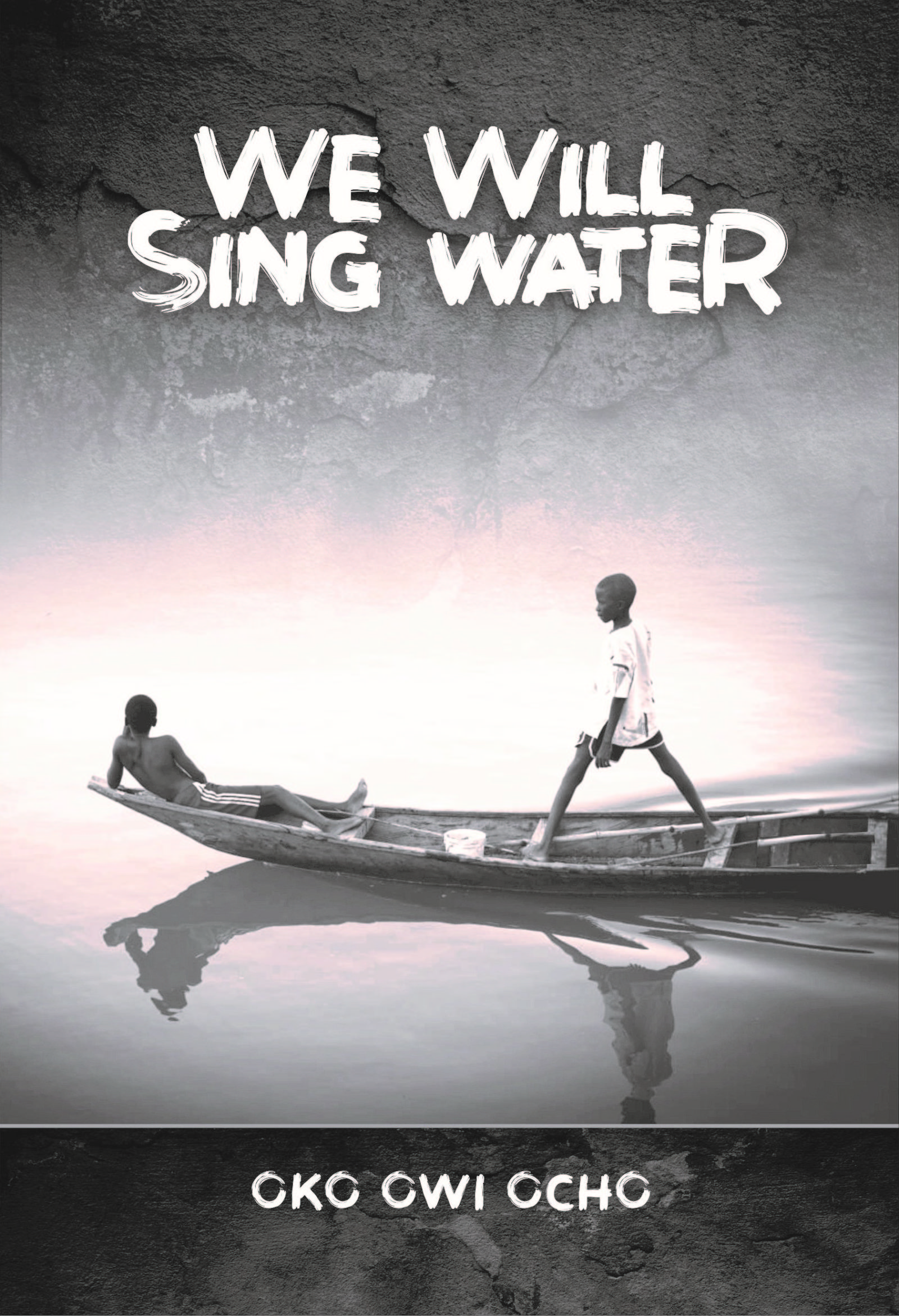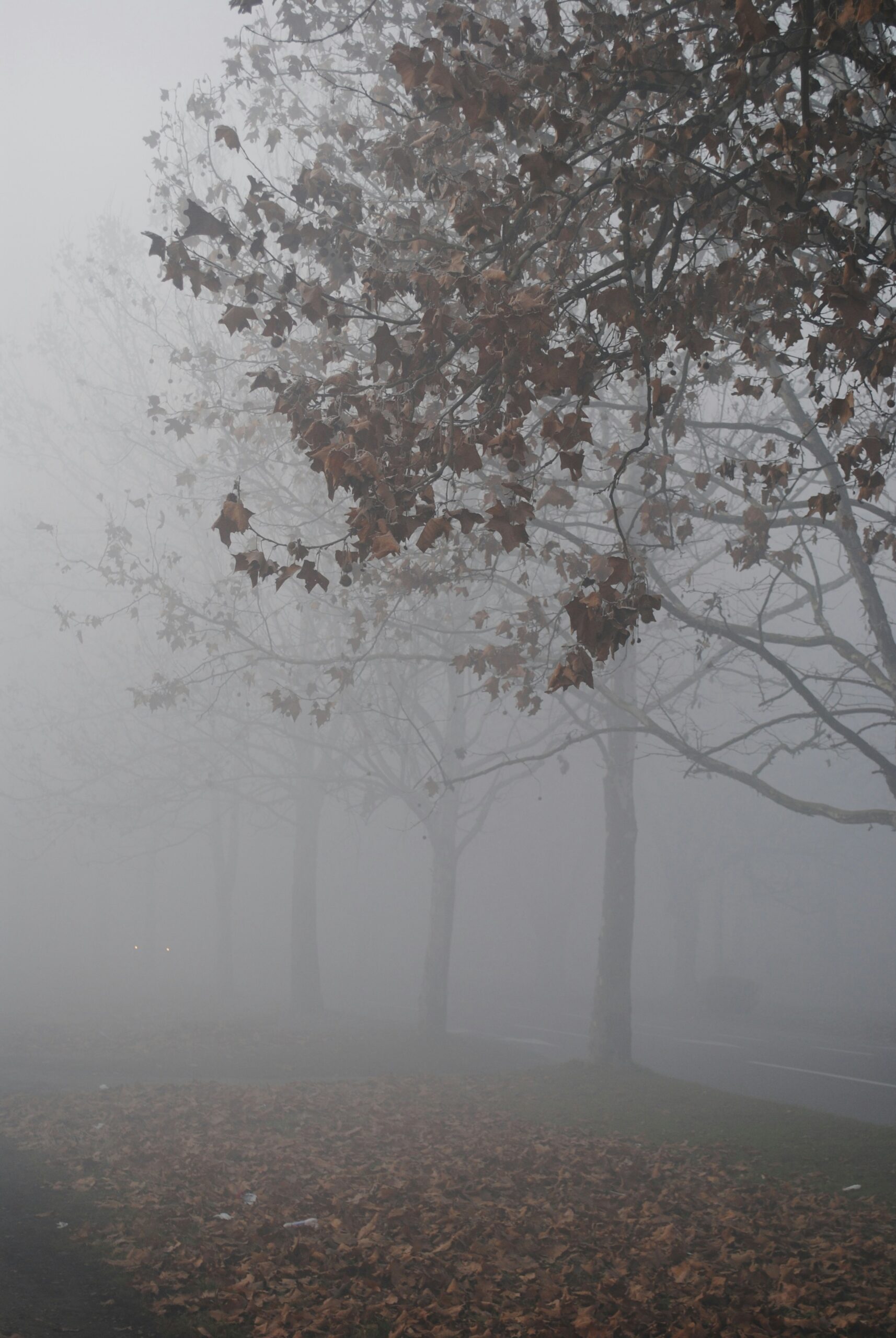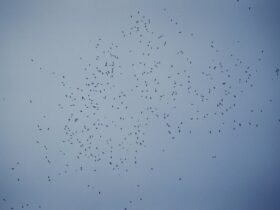Frantz Fanon wrote in The Wretched of the Earth that “for many years to come we shall be bandaging the countless and sometimes indelible wounds inflicted on our people by the colonialist onslaught.” We find ourselves in the post-disillusionment phase of the postcolonial continuum. Many of our writers today escape its contemplation, pursuing concerns which have taken over the day: like the investigation of the body in time and space, disillusion for country, and many private battles. Oko Owi Ocho, however, is still burdened by Fanon’s prophecy as he navigates the subject of displacement in his chapbook We Will Sing Water (Sevhage, 2022).
In We Will Sing Water Ocho reiterates and reminds me of Kayinsola Olorunnisola’s persona, whom I referred to as a “pan-African teenager” in my review of the latter’s underground classic chapbook In My Country, We Are All Crossdressers. But in exploring the subject of displacement, Kayinsola’s gaze is to ships, and across the Atlantic, musing over the onslaught of slavery and colonialism, in mapping the history of our displacement. In his words, the bodies of our fathers “dissolved into the blueness of an ocean,” where “The story begins with a ship and ends with a drowning.”
In Ocho’s work the gaze is reflexive. It starts from within, in an introspection between himself and the land (his Grandmother as totem); and not facing the ships or ocean. Yet it isn’t very different from Kayinsola’s, as the turmoil of estrangement is evident. Ocho makes an early declaration in his first poem, “living without the map of your village on your tongue”:
living without the map of your village on your tongue
is one’s first death
the city is an emblem
of loneliness
where foreign gods confiscate good hearts
and seize languages
that were the beginning of every man’s native god
The words are poignant and show Ocho’s arrival at the consciousness of a “first death” caused by displacement. They also spawn his attempt to escape this death, from the “foreign gods” who seize languages (identity), the primacy of one’s agency; a threat to pull one away from his “native god” which roots him to the land and gives him a true sense of the ownership of himself. Ocho’s fears is what Kayinsola contends with in Crossdressers when the latter writes, “my tongue is a path split into the feet / of two warring continents Atlantics apart.”
Ocho carries on his escape in the poem, “The City is Pathway to Exile,” the first line echoing Christopher Okigbo’s contrite before you, mother Idoto, naked I stand, in the words “At this crossroad, I come to you / Grandmother, tend the fracture that limps my soul.” His grandmother, an obvious allusion to Africa, responds with much chastising to her prodigal grandchild: “Are you home to the remains of a Dead God? / It was here you abandoned me for the prostitute of a new age.”
We are not blind to the intentional irony of Ocho’s words: for choosing to be a prodigal before his grandmother (Africa), even if he is not at fault but only a victim of history, he enacts the condition of crisis, his crisis, unsolved till date, of the impasse of any real freedom in sight—of which he confesses further in the poem, “The city doesn’t know my name / I was a refugee in its tale,” where the African is trapped in limbo, as Fanon rightly observed.
We never tire of postcolonial discourse in the Humanities. Any material on it is fecund for discussion. And why it is an important subject as it tells us all we need to know—e.g. Empire, Migration, Hair politics, Colourism, IELTS, stolen artefacts, the Berlin Conference, and more—about our social evolution and current place in the world today, it has sadly become a pastime for dinosaurs and a few artists who still ask questions of black identity, as the continent is galvanised in a smokescreen of globalisation. Of course, I can keep talking about it, and go on to discuss one of the finest poems in the chapbook, “Now that I Sing God into Stones,” where Ocho writes, “Africa is a country that fell from the whiteman’s mouth.” But I’d like to pay attention to some aesthetic concerns.
Ocho has always courted a songlike, mellifluous aesthete in his poetry. An obvious characteristic is the prevalent es sound: if it’s not alliterated in a line, it appears almost in every line. (Go back and read the lines of the first poem quoted above.) Here’s more: The 1st line of “Zeyani,” a mournful poem about the anguish of love found, then lost to man’s brutality, is: “I lost Christ on the crucifix of your eyes.” Its 5th line: “Somewhere, around the edges where vows becomes bones.” In another poem, we read, “The city has swallowed this century. Even then / the music of exile is made of thorns.”
In Ocho’s pursuit of musicality, his diction is informed by subconscious redials to a palette of soft-sounding words in his linguistic repertoire. We take a look at the first stanza of “Arani”:
remember the songs you stole from your father’s pouch
& the way you made our bed in the form of reggae,
how you spanked my lips in kisses and said in a hush
The ear picks the euphony in the flowing lines accentuated with mellifluent words. The hiss of s in “songs,” “father’s,” “lips,” and “kisses.” The euphony of “pouch,” “the way,” “our bed,” “reggae,” and “hush.” Ditto the eponymous poem “We Will Sing Water,” where the word sing is in the title and the first lines:
There is something about the way
w
a
t
e
r
sings . . .
as if Ocho, the Singer of Water, is always approaching a song, in every step, in his poems.
The poem is a song, sorrowful, mournful. In it, he blends his attention to musicality with a metaphorisation of the element, water. Both are aesthetes to a complete arrival of meaning in the poem. Here is water. Here is a song. Here is the death of a young girl by herders. Water is the communion for Ocho and the girl Aladi in the poem. Water is migration, movement: on its face are stories of our humanity. Water is relief from thirst. It is clean air: relief from agony. It is assurance: we believe that we will go on. It is memory, reminding us of things. It is endurance. It binds our existence. It is life.
Thus, water sang the first song for the poet and the girl, and becomes the conduit of memory between them as the poet mourns. Or water is the Primal Language for meditation when Ocho says: “there is something about the way water sings,” because:
its keynote breaks the fragrance of tender memory.
I receive you through the pathway of this song,
Aladi,
Here birds are flying in two
& fishermen sing lonely songs in cold chats.
I hold you with water & its sad music.
There is something about the way water sings:
it leaves me at high pitch of sorrow.
I remember we sang to God through water
& you have always contended with him
until you fell under the machete of Herders
Ocho creates gloomy sobriety in the two lines addressing Aladi—of birds flying in two, and fishermen singing lonely songs in cold chats—as a mirror for his mournful state. Through this, he holds the girl Aladi, receiving her through the pathway of his song, the sad music of water he is singing to her. This same water they both sang to God before the girl’s demise.
While Ocho ponders where his love lies more, to God or the girl, she is snatched from life under the shadow of a herder’s machete. The water song becomes bile, leading him to find another song: not of water, but “guns.” This is a desecration of the sanctity water held between himself, the girl, and God. But humans are creatures of regeneration, so the poet is not surmounted. He finds a path to healing from the loss of the Aladi, water playing the role of succour:
Every dawn, Aladi, I recover you through the pathway of water
and he hopes, dreamily, they will meet one day:
But now that the sea invites me for a kiss, Aladi,
We will sing water on the other side.
But Ocho, a man of art, knows his hope is ephemeral. This knowledge marks the irony in the line before the last: he too must go the way of migration—“death,” “water”—for the possibility to see Aladi once more, so that they may sing water. But we can say he is only expressing a momentary duration of peace in that line (“now that the sea invites me for a kiss”), which he can only experience while he is alive.
With this ars poetica, Ocho joins a group of Nigerian poetry stylists invested in a type of imagery construction I describe as “meta-fluidity”—an experimentation of overstretching the literary technique known as the transferred epithet. It is a process of first disorganising form in imagery, where the image of a metaphor isn’t congruent to its referent, but obliquely inferred. A good illustration is Carl Sandburg’s “Fog”:
The fog comes
on little cat feet.
It sits looking
over harbor and city
on silent haunches
and then moves on.
What Sandburg does is to transfer the qualities of a cat to the fog, thus the term transferred epithet. However, in Ocho’s case, this technique is overstretched, so that the word-to-imagery process is disorganised, past the transfers of the qualities of one entity or image to another, with an evasive visualisation to rely on, not only being fluid but meta-fluid. Consider the “we will sing water” metaphor to begin with. Or “I remember we sang to God through water.” Or “Every dawn, Aladi, I recover you through the pathway of water / Hoping to carve you into the shape of God.” Or in the poem “God is a Lonely Mistress”:
I made a stream by the mansion
Loneliness erected in my heart.
Some nights, listening,
I dismantled my isolation to tolling bells.
And in “Now that I Sing God into Stones”:
Now that I sing God into stones
my village carved from his bones is
breaking the chisel
& the face I get
differs from the picture my mother described of my image.
The title of the last poem is a meta-fluid metaphoric expression itself. These metaphors do not yield direct images in the mind, demanding time and contemplation for the gradual revelation of the images they paint. Rather, what is derived is only an apt rendition of the musical. To glimpse their imagery entails a patient process of having unravelled the meat of the poems themselves. (For clarity, I wouldn’t say meta-fluidity is abstract imagery. It has graspable visualisation; whereas the latter leans more to obfuscation.)
But I return to the theme of displacement in Ocho’s work, as it is the first item in my essay title. I am looking now at the poem “How Does One Inherit Grief”:
How does one inherit grief
and not owe his history questions?
memories fall from stars
and torment us with chains. How is this memory ours
when our body is outside
the slave ship? . . .
Earlier, I hinted about the weariness of this theme. However, this weariness, the fact that we have to come back to it, to ask the question of our displacement till date, underscores how unarrived we are in wrapping our heads around the colonial onslaught. The poets are saying we may be moving on but the memory of the horrible past years and the inheritance of having the black skin carries on—which is rather ridiculous, I mean, isn’t it just biology? Is it not chance that makes you and me a black person? Can’t we in this age choose to walk our path and say “fie to this thing?” It doesn’t appear so.
This is why the weight of ancestry which Ocho’s words bear—“How does one inherit grief / and not owe his history questions?”—is an important question. In Crossdressers, Kayinsola shares his torment: “who gave my people / their names, this colour the darkest of lights / trapping a civilization in backwaters of doom . . . the kind of tragedy Fela crooned endlessly about.”
The usual question arises: is all our poetry about grief? It bears the weight but it is not entirely about grief. Because every good reader or poet knows that poetry is rarely cheerful and mostly has the character of melancholy and introspection—and our poets have an abundance of this. Just listen again: “How does one inherit grief and not owe his history questions?”
To this sober journey in the poems so far, the two poems in the last pages turn to love as Ocho finds escape at last. The metaphors coincidentally shift in style, shorn of the evasive meta-fluidity:
let me make a mountain from the molehills
that reside on your chest
inviting me into insanity
let us make a tent here
where confessions will be carved on lustful tablets
if not your ears, no godis enough to hold my words
The poems in We Will Sing Water are themed around Ocho and are confessional to some length. They deal with a familiarity with death. Dirges appear repeatedly. The titular poem is a dirge, so are the twin poems “Arani” and “Zeyani,” distinct in similar, rich metaphors. Poems like “Childhood and the Texture of Anguish” and “your palms open into a village” show how Ocho grapples with grief and loneliness. Vulnerability slips through his language. The poems are kind and gentle. There is no retort when he writes about empire, for example. As his poetry aims for musicality as a signature, it aims also for the tacit contract of sincerity and beauty a poet owes his reader. We Will Sing Water is a testament Ocho announces himself with on the altar of our praise and criticism.
- Wendy Okeke Portrays Her Humanity in Grief’s First Kiss is an Avalanche - February 28, 2025
- Why We Were Walls and New Openings – A new anthology of art and writing from Creative Writers’ Club, ABU Zaria - June 1, 2024
- Register for an engaging 10-day workshop on essay writing with Carl Terver - March 4, 2024












1 Comment